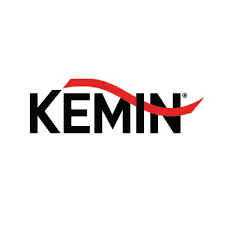THE ENTREPRENEURS: Joel Bennett
Founder, Veel Hoeden LLC

Inspiration for his company struck Joel Bennett while working in coffeehouses.
In 2009, Bennett took a chance and quit his corporate job at Pella Corp. to become the full-time executive director of A Call To Serve Ministries (ACTS), a start-up organization he’d helped found in 2006. He found himself working on his laptop in coffeehouses in typical entrepreneur fashion, and met other people who were running small businesses or trying to build them – “people just like me,” he said.
“Through that, I realized there was this need for a place of our own,” Bennett said.
So in October 2010 he started Veel Hoeden LLC, a coworking space in Pella for entrepreneurs and small businesses. Veel Hoeden, which is Dutch for “many hats,” lays claim to being the first rural coworking space in Iowa.
“Most of the coworking spaces, you go to the East or West Coast, they are going to be in big cities or suburbs of big cities,” Bennett said. “But we find there are more spaces popping up around the nation that are in towns of 10 to 15 to 20,000 people. It’s just a different dynamic. It’s fun.”
Veel Hoeden’s goal is to give entrepreneurs physical space to work out of, and give them a chance to collaborate. It now houses about a dozen businesses, and since its opening, similar spaces have opened in other small towns in Iowa.
Bennett, who worked at Pella Corp. for 11 years, jumped into the entrepreneurial world when he and a friend saw a need to meet in Pella and surrounding towns. There were people who needed help – “situations where it’s income-based, or it maybe a physical disability, just tough situations” – and there were people who wanted to help. The goal of ACTS was to connect those people.
They have; in six years, ACTS has done 700-plus projects with thousands of volunteers, Bennett said.
He knew it would be a risk to leave Pella Corp. to run ACTS fulltime, but felt that the door was opened. Looking back, he says it has been an exciting time in his life and a blessing.
Bennett said he is transitioning out of the executive director role at ACTS to give someone else a chance to lead the organization, and to focus on Veel Hoeden. He draws parallels between the two organizations in that neither had been done before in Pella.
“I can always go back to the corporate world,” Bennett said. “I’ve still got that same resume, with more experiences now. But you don’t always get the opportunity to do some of the things that you are more connected to and love to do in life, so you have to take those risks.”
Q & A
What is one piece of advice for other entrepreneurs?
Always be active in building relationships. And there’s a difference between that and networking. Networking typically is getting people’s names, numbers and what they do, and hoping someday that you can maybe call on them to help you out with something. Building relationships, there’s a time investment there, and getting to know people and what they are passionate about.
What’s your guiding principle?
Especially in the ministry, and even with Veel Hoeden, 1 Peter 4:10 talks about using the gifts that God has given us to serve others. If I were to put that into business world terms, I think, whether it’s serving your customers or people you work with, try to give more than you get. That’s, especially for an entrepreneur, sometimes counterintuitive. … For me, I’ve always found that in building relationships and getting to know people and working with other businesses, if I’m able to give them more value than they are even expecting, even if it seems like I’m getting the short end of the deal, those are the relationships that continue.
What frustrates you?
I think it’s very easy for people to generalize situations. Using the ministry as an example, when we work with people who are in poverty, who have struggles, it’s very easy from a 30,000-foot view to say, “Well the reason that happens is because of poor choices.” It frustrates me when we look and people say, “That’s something they should be taking care of,” or “That’s the government’s role.” I get back to what the power of the individual is. The reason that problems get solved most often is because someone steps up and takes care of.











